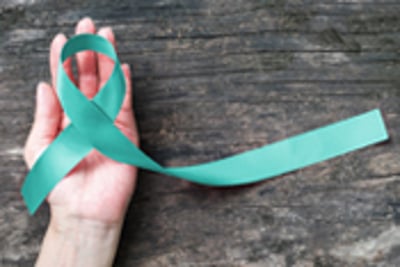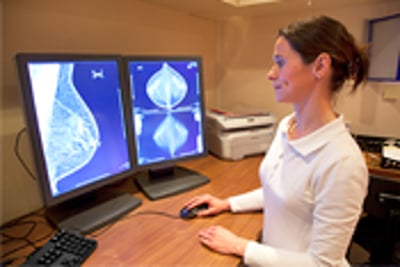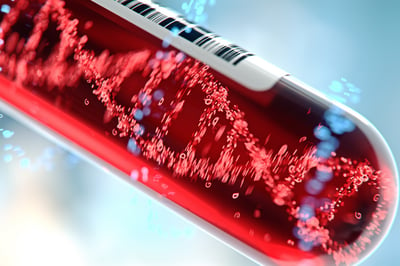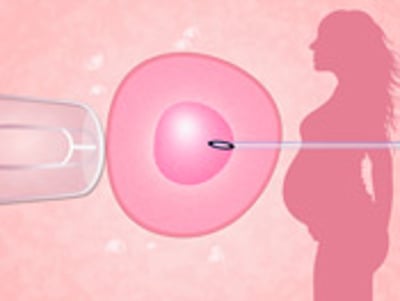Hereditary Cancer



Relevance: Medium-High
Most relevant for: Woman who are facing mastectomy
Article: After mastectomy: reconstruct or not?
Today, more women know they can have breast reconstruction after removing their breasts for cancer treatment or risk reduction. But what about choosing not to undergo reconstruction? Roni Caryn Rabin writes about the experiences of women who decide against reconstruction in her New York Times piece “‘Going Flat’ After Breast Cancer.” (12/14/16)
READ MORE ›


Relevance: Medium-High
Most relevant for: Men diagnosed with breast cancer
Personal Story: Men get breast cancer too
Cathy Free's piece for People, “Men Have Breasts Too: New York Man Who Survived Stage 2 Breast Cancer Spreads Message,” tells the stories of two men whose experiences with breast cancer inspired them to speak openly about breast cancer awareness for men. (11/29/16)
READ MORE ›


Relevance: Medium
Most relevant for: People considering genetic testing and people who are Ashkenazi Jewish
Personal Story: Why one woman passed on genetic testing
What are reasons to get or not get genetic testing? Cynthia Graber gives her thoughts on the matter in her Wired opinion piece, "Why I Won't Get the Genetic Test for Breast Cancer." (11/15/16)
READ MORE ›


Relevance: Medium
Most relevant for: Women under 50 years of age who have had or are considering removing their ovaries
Study: Removing ovaries before age 50 may increase the risk of chronic conditions for some women
Removal of ovaries and fallopian tubes prevents ovarian cancer, but it may come with other health risks. Experts recommend removal of ovaries and fallopian tubes in women at high risk for ovarian cancer due to inherited mutations in BRCA or other genes linked to ovarian cancer risk. For these high-risk women the benefit of ovarian cancer prevention outweighs the risk of long-term complications. Based on a recent study, some researchers feel that for women who are not at increased risk for cancer, the risk for some chronic conditions is too high to consider removal of both ovaries. (11/1/16)
READ MORE ›


Relevance: Medium
Most relevant for: Women who are at high risk for breast cancer due to family history, dense breasts, LCIS, or multiple biopsies
Study: Breast cancer screening should be tailored to a woman’s risk factors and breast density
The United States Preventative Services Task Force (USPSTF) recommends a screening mammogram every other year for women ages 50-74 who are at average risk for breast cancer. But do all patients in this category benefit from this screening regimen? 10/18/16
READ MORE ›


Relevance: Medium-High
Most relevant for: People who tested positive for one of the rare variants in CHEK2, ATM or PALB2 that are covered in this study
Study: Rare mutations in PALB2, CHEK2, and ATM: how much do they increase cancer risk?
As multi-gene panel tests become more common, people are discovering they have mutations in genes that are not understood as well as BRCA. This can make it difficult to give patients accurate assessments of their cancer risk. For example, mutations in PALB2, CHEK2, and ATM are rare, but some specific changes in these genes are even less common. The goal of this international collaboration was to better understand the cancer risks of some very rare PALB2, CHEK2, and ATM mutations. The findings are relevant only to the specific mutations covered in this paper and do not apply to all people with mutations in PALB2, CHEK2, or ATM. (9/27/16)
READ MORE ›


Relevance: Medium
Most relevant for: Woman at average risk for breast cancer who have or are considering undergoing In Vitro Fertilization
Study: Does IVF increase a woman’s risk for breast cancer?
In vitro fertilization (IVF) wasn't commonly used until the 1980s, so its long-term effects are mostly unknown. A new study suggests that the treatment does not increase a woman's risk for developing breast cancer. (8/23/16)
READ MORE ›


Relevance: Medium-High
Most relevant for: African American women who have been diagnosed with breast cancer
Study: Racial disparities in BRCA testing: Why?
Black women receive BRCA testing less frequently than white women. Why is that? Researchers thought the reason might be that black and white women see different health care providers. However, new research suggests that disparities in physician recommendations for testing are the cause: black women with breast cancer were less likely to receive physician recommendations for BRCA testing than white women with breast cancer. There is a need to ensure equity in physician testing recommendations for black women. (7/21/16)
READ MORE ›


Relevance: Medium
Most relevant for: Women with a BRCA1 mutation
Study: Early research on a drug to prevent breast cancer
Many researchers are interested in non-surgical options to reduce the higher-than-average risk of developing breast cancer in BRCA mutation carriers. This research study identified a type of drug, called a “RANK ligand inhibitor,” that may prevent breast cancer. Among mice that were genetically engineered to have no BRCA1 genes, those that were given the drug developed tumors less frequently than those that did not. While this is an exciting early study for BRCA mutation carriers, more work and human clinical trials need to be done before this can be used as a prevention therapy in humans. (7/12/16)
Update added 11/24/19: The RANK ligand inhibitor, denosumab is currently being studied as a possible breast and ovarian cancer preventive agent in human clinical trials.
READ MORE ›


Relevance: Medium-High
Most relevant for: Women who drink alcohol and are concerned about their breast cancer risk.
Study: Does light alcohol consumption affect your breast cancer risk?
Alcohol is known to increase breast cancer risk, but does that include light consumption? This study indicates that some breast cancer occurrences and mortality is due to light alcohol consumption. (06/21/16)
READ MORE ›